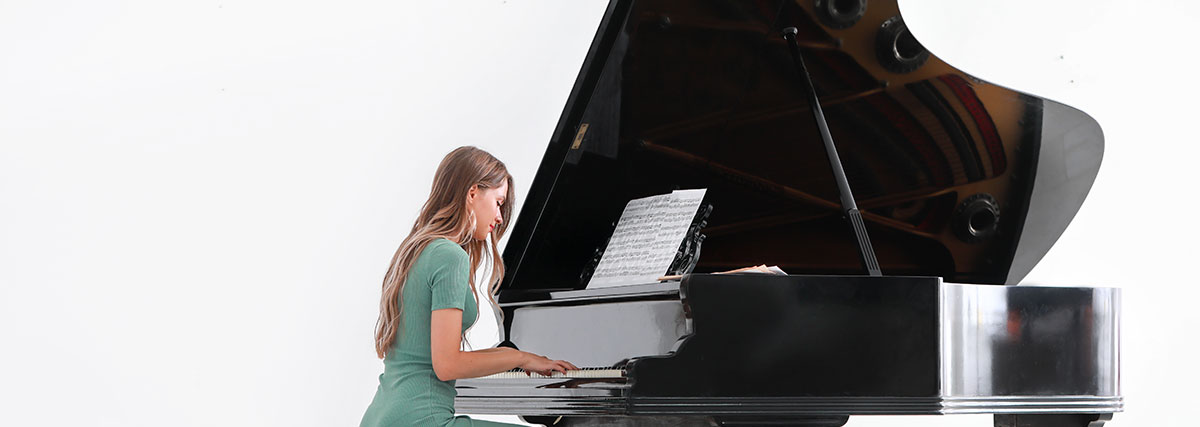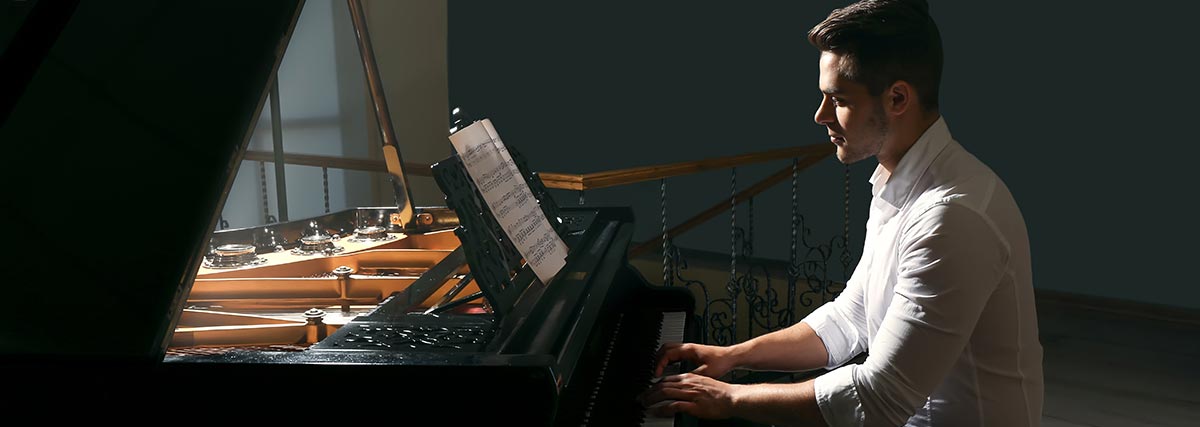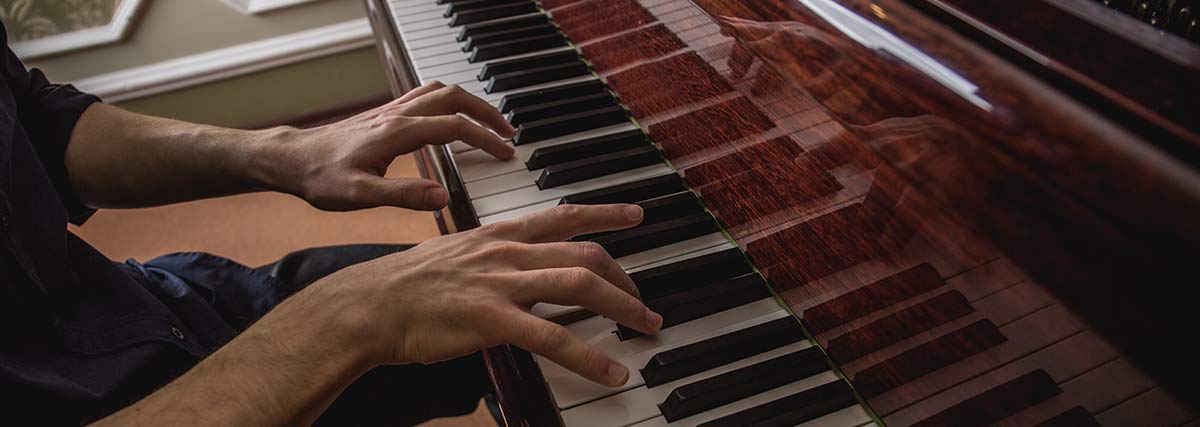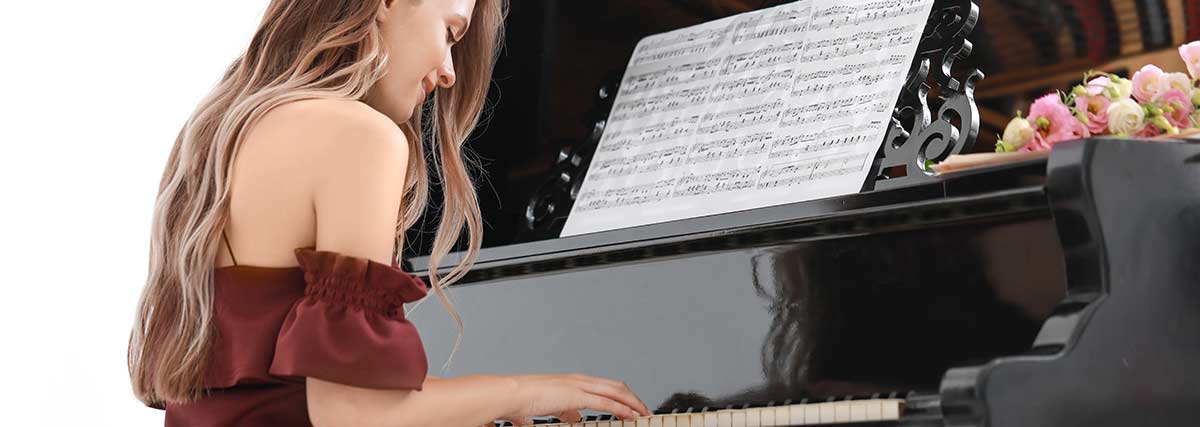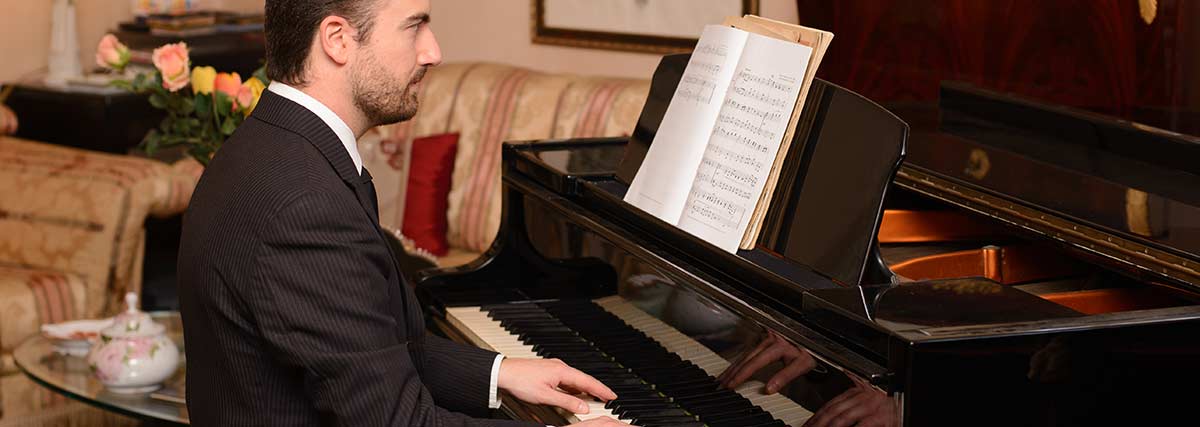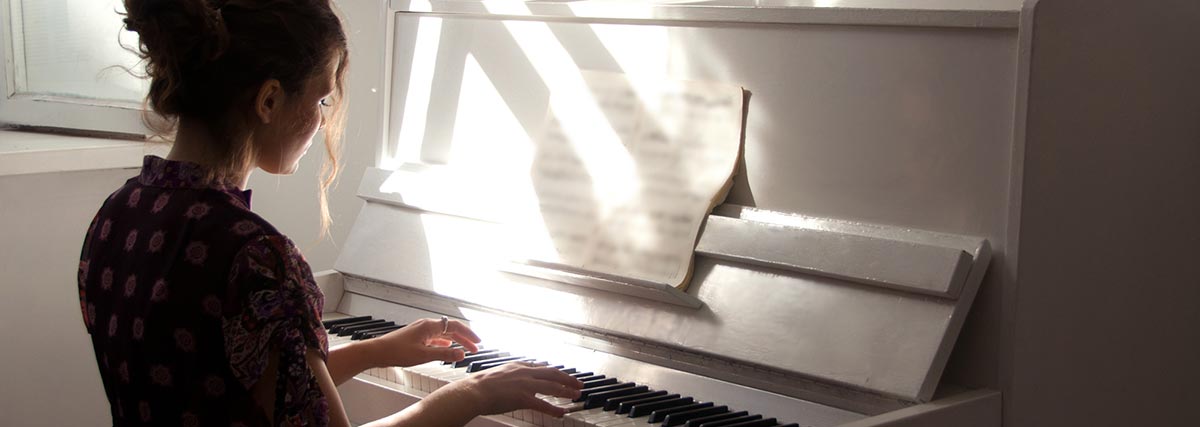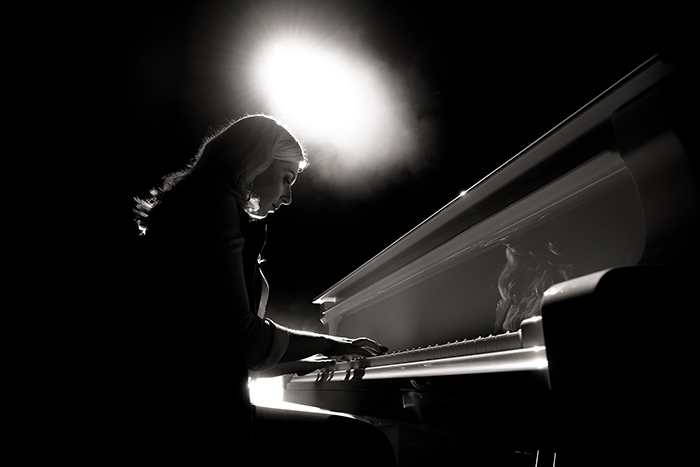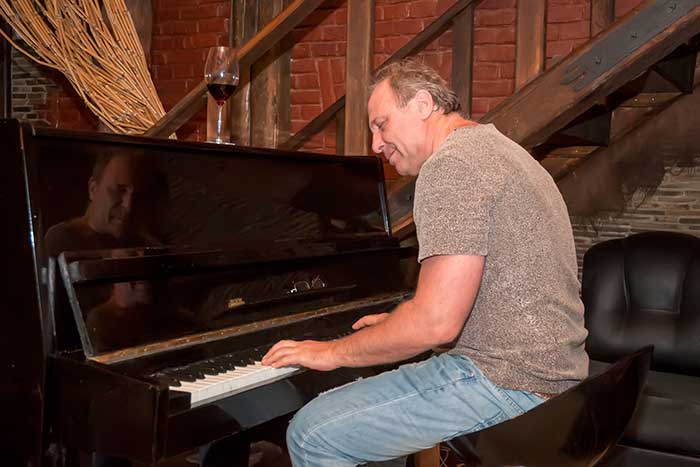It is a well-known question that many adults have in mind: “Should I or shouldn’t I learn how to play the piano?” You are 30, 40, 50 or even 60 years old and you wonder if it makes any sense to start learning how to play or get back to it after stopping your education in your early 20s.
Many adults contemplate the idea of returning to piano playing or embarking on a piano journey but only a few take the plunge. It is a shame, especially as it is based on unfounded beliefs, doubts and uncertainties. Some have played in their childhood and are worried about meeting a morose piano teacher, others wonder if they will be good at it or whether it is worth it. Most of them think that it is a ridiculous idea since they might not be talented and end up making a fool of themselves. So many questions asked, and so few answers given.
Wondering and thinking about it will not take you far so why not considering it very seriously?
All creations start with an idea and I believe that everything we are deeply interested in is worth being investigated. I believe that we do get specific ideas for a reason and that we should always consider exploring them. We are all unique individuals so making our thoughts and ideas come to pass allows us to become who we really are.
Not everybody is interested in playing the piano. My father is a violinist. My mother and my sister are both cellists. My grandmother used to attend the church choir. My husband is a guitarist. I wanted to learn how to play the piano.
I have prepared a set of questions that could possibly help you decide whether you should or should not learn how to play the piano as an adult.
1. Is It A Recurring Idea Or Just A Quick Thought?
When I get a new idea, but I am unsure whether I should pursue it, I usually let it simmer. It avoids making mistakes as excellent ideas are usually recurring. The thought will usually come back to me when I am thinking about it. It normally happens when I am busy with housework or with a similarly mundane activity.
Do you get this sense of certainty each time you hear a piano composition or see a piano in a shop window or did the idea of learning how to play the piano went through your mind only once when your colleague told you that she just started to take piano lessons?
2. Are You Prepared to Attend Regular Piano Lessons?
Playing the piano is an extremely enjoyable activity but, as you have probably already guessed, you cannot do it on your own. You can try, but the results will be unsatisfactory and a huge disappointed is almost assured to follow your original enthusiasm. You might think that watching some YouTube videos or buying a piano book for beginners will do the trick. Please accept my apologies for disappointing you but piano playing is both an art and a science that requires the guidance of an expert.
If you did not know how to swim, would you jump in the water and hope for the best or would you take some swimming lessons? If you were interested in piloting a plane, would you buy a small jet and take off? Probably not.
If you want to learn how to play the piano, you should plan to attend lessons weekly in a reputable piano school. Your education should be taken seriously if you want to make progress and enjoy the fruits of your hard work. I can assure you that trying on your own to avoid spending money on education or “wasting” your time travelling to a piano studio is not the way to go.
As the founder and artistic director of The London Piano Institute, I have often met adults who reveal that they have tried on their own before booking a piano course with us. They contacted us as they were feeling stuck and missed structure and direction. They were also missing the expertise of a professional pianist which is critical to avoid forming bad habits and heading in the wrong direction.
3. Are You Prepared to Purchase an Instrument?
A common mistake amongst adult beginners is the lack of understanding that it is essential to have an instrument to practice on in between their piano lessons. You can either rent or purchase a digital or an acoustic piano. It is totally up to you. I believe that it will depend on your budget, the space you have available in your home and your ability to make noise.
I do not consider music being noisy, but it is, unfortunately, the way it will be perceived by your neighbours. If you are a beginner, you might also feel shy and prefer playing with headphones available on digital pianos.
Before booking your piano course, take this information into account. Do not worry if you do not know which instrument to purchase as your instructor will be able to advise you.
4. Are You Prepared to Practice?
Attending your piano lessons is a fantastic opportunity to get some guidance from your piano teacher and learn some new skills but it is not during these sessions that you are going to improve and make progress. You must dedicate some time to personal practice daily or at least every other day if you wish to become a proficient pianist.
Once again, before booking your piano course, you should think of your ability to practice and figure out how to organize yourself. Depending on your lifestyle, you might have to set up your alarm clock a bit earlier, watch less TV in the evening or make your lunch break shorter. The most important is that you figure out what works best for you regularly.
As a pianist and master piano teacher, I can assure you that practising will make a massive difference to your piano playing and that it will even boost your natural talent! Instead of wondering if you will be good at it, practice diligently. You will see that you will soon be excellent!
5. Are You Prepared to Stick at It?
The aim of this article is not to discourage you, but I must tell you the truth. It takes time to build a strong piano technique, develop a fantastic sound production and years of experience to truly understand the depth of the pieces of the repertoire. Do not worry, it only takes a few weeks to play some nice and easy piano pieces but much longer to become a master pianist.
I could compare it to golf playing. It does not take too long to manage to put a ball in a hole but doing it like Tiger Wood is slightly more demanding!
As with every other high skill, your abilities will improve over time and you will encounter some plateau and setbacks. My best advice is “do not give up and keep your eyes on the prize”.
I used the word “journey” at the beginning of this article, but I am now wondering if it is right. A journey implies a destination, but piano playing is a lifestyle. There is so much to learn, explore and discover that there is no end to this wonderful art.
6. Are You Prepared to Be Pleasantly Surprised?
I often discuss the fear of success with one of my students who is fascinated by this concept. We usually talk about the fear of failure who is more common but rarely about the fear of success which also exists. Being able to do something you never thought was possible could be scary as it will take you out of your comfort zone. In other words, you will discover an unknown part of yourself and realise that you did not really know what you are capable of.
It is likely that you have some preconceived ideas and that you believe that you will be a mediocre pianist. It is unlikely that you believe that you will make your debuts at Carnegie Hall soon!
But what if you study with a fantastic piano teacher, follow his advice and practice regularly? What if you become the pianist you have always wanted to be? Have you thought of this possibility? Wouldn’t it be incredible to play your favourite classical pieces or jazz standards? You probably do not believe it, but it could truly happen and change your life entirely!
I am sure that you are well prepared to be unable to read music, coordinate your hands and understand music but you should also be prepared to experience success.
At The London Piano Institute, we have never met someone who could not play the piano and possibly become a fantastic pianist over time. Not all people who took piano lessons with us became successful since many of them gave up at the first set back, but I can assure you that there is no reason why you cannot become a wonderful pianist.
Are you now tempted to answer the question differently?
If you have read this article until the end, it tells me that you are truly interested in piano playing and that the answer should be: Yes, I should learn how to play the piano!

